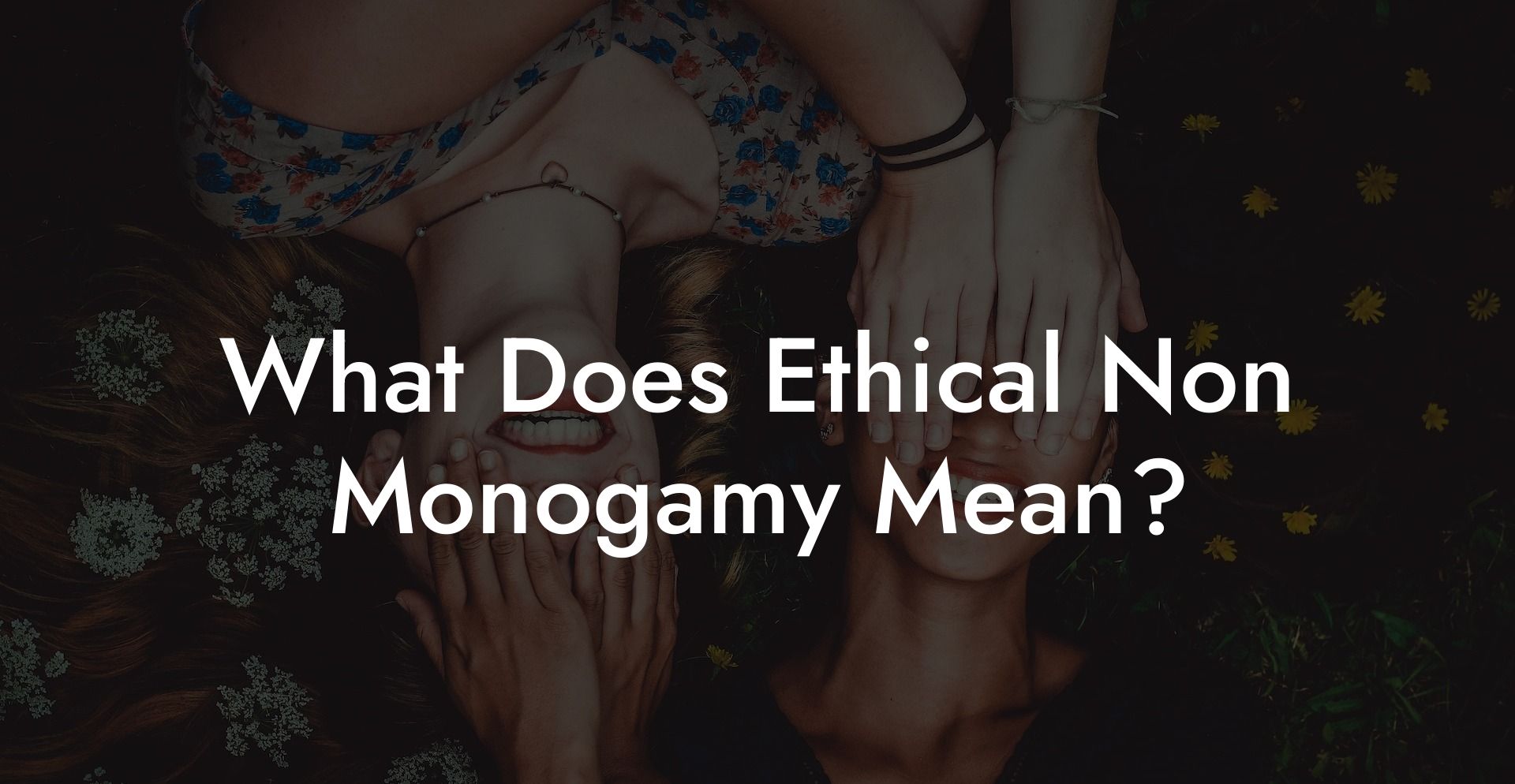In a world of diverse lifestyles and relationships, the term 'ethical non-monogamy' has become increasingly popular as more people question traditional monogamous relationships. While some embrace the idea of one committed relationship, others wonder if there is a more ethical approach that better suits their needs. If you've ever wondered what ethical non-monogamy exactly means and the benefits it could bring to your relationships, then look no further. In this guide, we'll provide you with a comprehensive understanding of ethical non-monogamy, complete with a realistic example and an engaging outro. So, let's delve into the exciting world of ethical non-monogamy.
Simply put, ethical non-monogamy refers to the practice of having multiple romantic and/or sexual relationships with the full knowledge and consent of all the parties involved. In other words, it allows individuals to engage in multiple committed relationships without deception, cheating, or violating any trust.
Now that we have the definition clear, let's explore the various forms of ethical non-monogamy:
Open Relationships
In an open relationship, partners agree to be emotionally monogamous, but they may have sexual relationships with others. The specifics of these arrangements, including boundaries and limits, are unique to each couple.
Swinging
Swinging is a form of ethical non-monogamy where partners engage in sexual activities with other people, often in a group setting or at designated "swinger" clubs. Usually, the focus is on sexual fulfillment rather than forming long-term emotional connections.
Polyamory
Polyamory, which means "many loves," involves forming multiple loving relationships that are often deeper emotionally than just sex. It often includes forming long-term connections, commitment, and even living arrangements with more than one partner.
While these terms encompass different practices, they share the common principles of honesty, communication, and consent, which are essential to ethical non-monogamy.
Example
Meet Jake and Lisa, a married couple who have been together for six years. In their relationship, they have always valued open communication and trust. Over time, Jake realizes that he is attracted to other people, and he discusses this with Lisa. They decide to explore opening up their marriage to ethical non-monogamy.
Together, they discuss boundaries, potential problems, and jealousies that may arise. They decide that they will both only have sexual encounters with others but maintain their emotional commitment to exclusively each other.
After setting their terms, they engage in various experiences, both individually and together, making sure to maintain open communication throughout. By being honest about their desires and the realities of their experiences, both partners maintain trust and strengthen their bond.
In conclusion, ethical non-monogamy is an alternative to traditional monogamous relationships that relies on honesty, communication, and consent. With various forms like open relationships, swinging, and polyamory, ethical non-monogamy offers a range of options for those who value relational freedom, exploration, and personal growth.
We hope this guide has provided you with valuable insights into ethical non-monogamy and its potential benefits. If you're intrigued and eager to learn more about other unconventional relationship dynamics, don't hesitate to explore other resources on The Monogamy Experiment. Remember, the key to any relationship is trust, communication, and mutual respect. Share this article with a friend, and continue the conversation about ethical non-monogamy.













